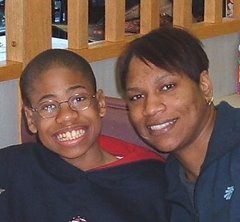By WTN News
08/24/05
Madison, Wis. -- Gender politics aside, every biologist knows that men and women truly are different.
Social disorders such as autism constitute one area where those differences come to the fore: around 80 percent of all autism cases, for example, occur in men. Social play behaviors also differ greatly between the sexes - just about everyone agrees that young boys play "rougher" than girls.
Early in human development, critical brain proteins known as steroid receptors lay most of the groundwork for ensuing sexual destinies. The receptors bind to hormones such as testosterone and estrogen and set in motion gender blueprints for a lifetime.
To understand why autistic children have trouble engaging in social interactions, researchers have long observed "rough-and-tumble" play - the propensity to bite, wrestle or pounce - in juvenile rats. Scientists were convinced that testosterone solely dictated the onset of such behavior.
But researchers at the University of Wisconsin-Madison have now made the surprising finding that estrogen-and even dopamine, a neurotransmitter-also play critical roles. The work, which appeared online Aug. 16 in the journal Endocrinology, can one day help to diagnose new autism cases and can potentially pave the way for new hormone-based therapeutic approaches that counteract the social difficulties of autism, says senior author Anthony Auger, an assistant professor of psychology.
Read full article at: http://wistechnology.com/article.php?id=2159
For more information and resources on autism, please visit:
http://www.autismconcepts.com/.
Forget what you haven't heard… Family site shares news, resources, announcements and free or low-cost ways to help us manage day-to-day living with autism.
Crystal Brown

About Me

- Crystal
- AutismConcepts.com and Child-Autism-Parent-Cafe.com share a large collection of useful autism information, resources, and how-to articles written by authors who are touched by autism, offering practical solutions to families. Particularly minority and underserved families and caregivers who may not know what to do or where to go for help.
MJ And Me

Blog Archive
-
▼
2005
(194)
-
▼
August
(15)
- Biomedical treatments are helping children with au...
- NAA and Safe Minds Sponsor Workshop to Discuss Env...
- Parents of austisic child ask for privacy
- Recent Handcuffing Of 5-Year Old Black Girl Was No...
- Gender hormones may lend to social disorder therapies
- Foundation Launches Database To Link Thimerosal An...
- Bridging Autism's Distance
- Chelation therapy has critics, champions
- Autistic boy dies during controversial treatment
- August 24 DC Protest - Why Are Atypical Drug Users...
- August 24 DC Protest – Vaccine-Autism Activists Jo...
- New Study Shows ‘Compelling Evidence’ of Major Int...
- Mercury and Tuna: U.S. Advice Leaves Lots of Quest...
- New UW study documents autistic regression
- Ruling supports autistic student, District told to...
-
▼
August
(15)